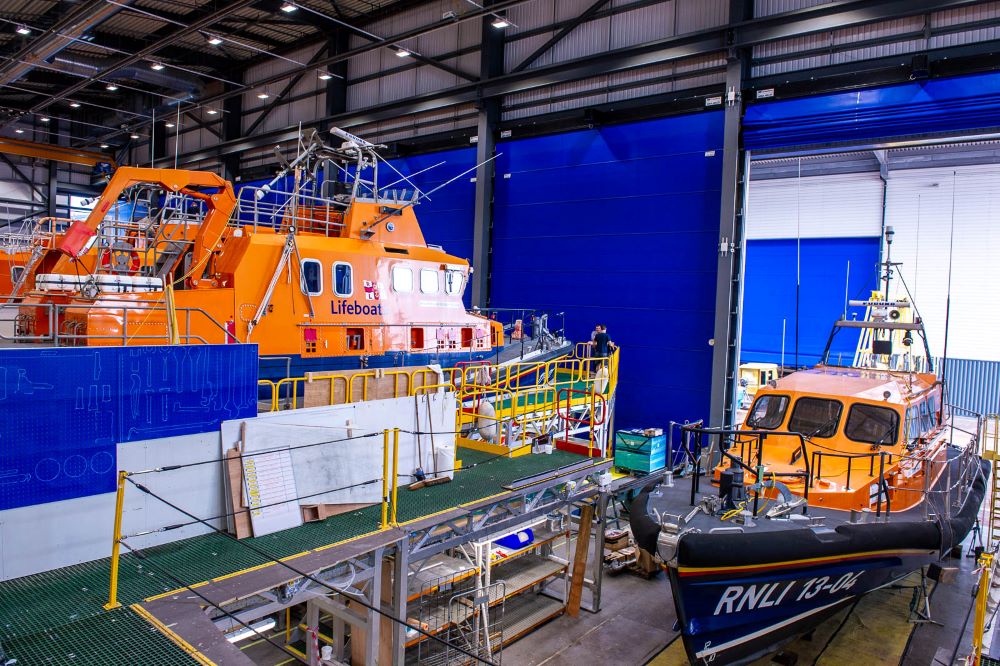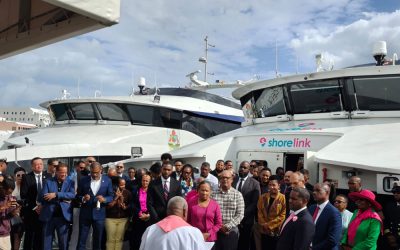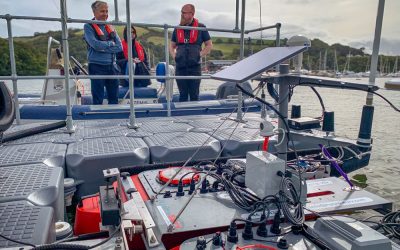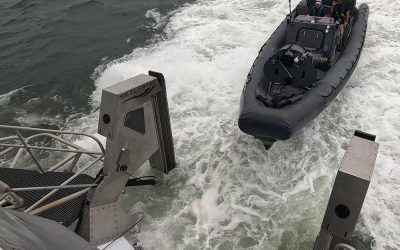The topics of marine engineering and safety are intrinsically linked. No clearer is this connection than in the Royal National Lifeboat Institution (RNLI), which celebrates its 200th anniversary this year. Throughout its storied history women in the organisation have been crucial to this both on land and at sea and are still driving change to ensure a safer maritime future.
Heather Nice, a seasoned CAD PDM and Configuration Manager at the RNLI is a testament to this progressive movement. In a recent interview with RINA’s Tom Barlow-Brown, Heather discussed her journey, aspirations, and the pivotal role of inclusivity in shaping the organisation and the wider maritime landscape.
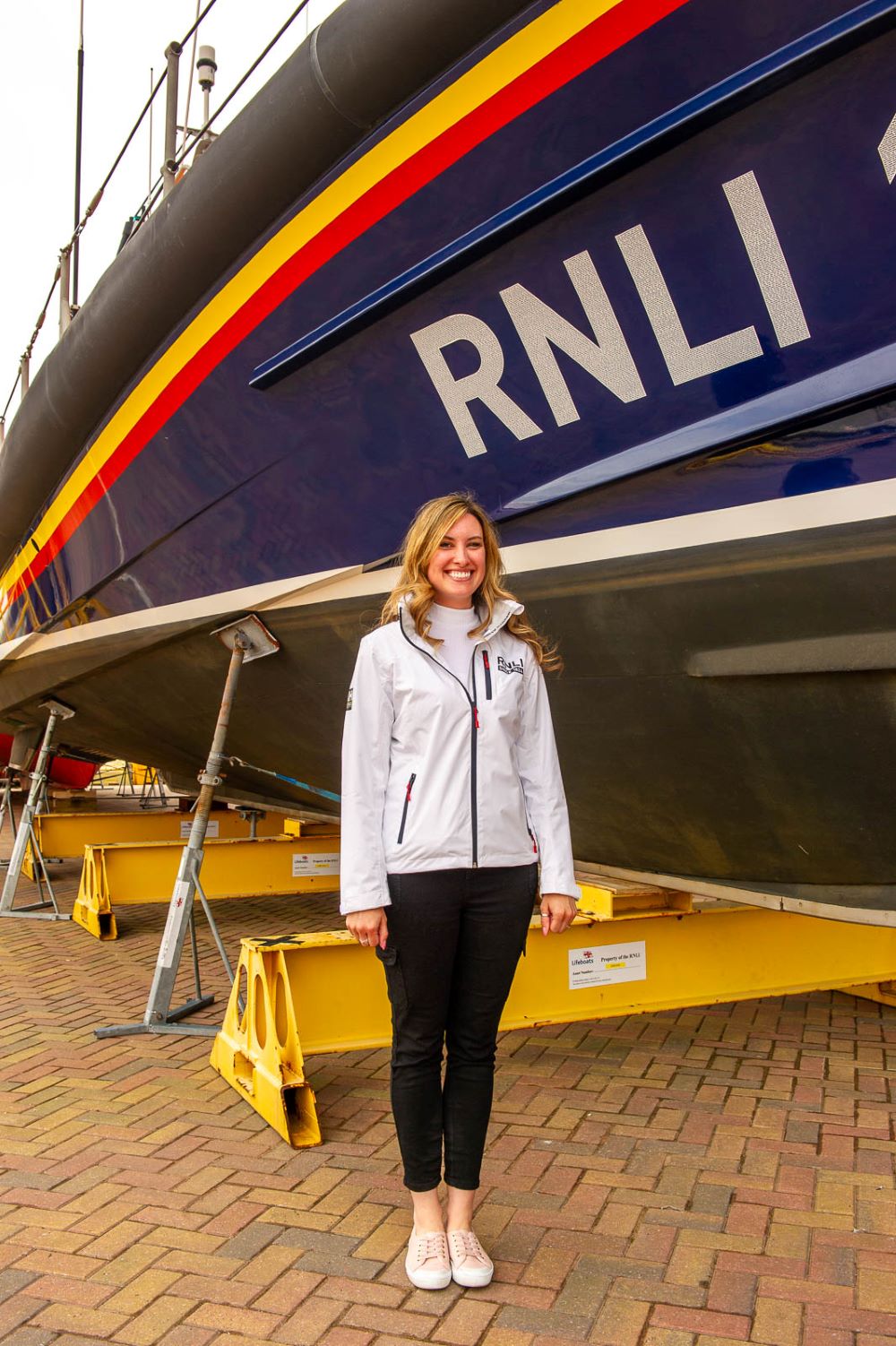
Heather Nice, RNLI. Photo: Tom Barlow-Brown
Heather Initially embarked on a path in psychology. However, after graduating university her career trajectory turned to the nuclear sector, where she discovered her penchant for configuration management. Keen to find a role that aligned with her personal values, Heather transitioned to the RNLI, captivated by its steadfast moral compass and dedication to saving lives at sea.
Reflecting on her transition, Heather remarked, “I had transferable skills from my previous job, so I was trying to decide if I wanted to stay in nuclear engineering or whether I wanted to work for an organisation that had really strong morals and apply them that way. The RNLI is a company that I have always admired, and they’ve got great values. So, I thought, this is great. I need to apply for that role.”
At the heart of Heather’s work ethic lies a fervent belief in fostering inclusivity and diversity within the RNLI. Championing initiatives tailored to support women in engineering roles, she accentuates the pivotal part positive role models play in sculpting the industry’s fabric. “I think a diverse group is a good group. You get a lot of different opinions and perspectives,” Heather emphasises.
“In a workplace you have to take all of that on board and when managing a team, you’ve got to decide who is the best fit is and how they’ll work together. But personally, I fully think that a diverse team is a better one,” she adds.
Based at the RNLI Support Centre in Poole, Dorset, Heather is responsible for managing the field Project Data Management (PDM) and Computer Aided Design (CAD) teams within the organisation. Her passion for technology and data management resonates through her work. One key project her team is responsible for is an upcoming meticulous review of the RNLI’s inshore lifeboats and the exploration of sustainable propulsion methods.
Embracing her role as an advocate for aspiring engineers, particularly women, Heather extols the satisfaction derived from contributing to the RNLI’s lifesaving mission. “I genuinely love data, information, documentation, making sure that everything is fit for purpose, organised and accessible,” Heather explains.
Heather’s career journey is another example in the history of the RNLI, an institution which has many famous women in its ranks. From Grace Darling, the heroine of 1838, to Elizabeth Hostvedt, the first official female crew member in 1969, women have played a transformative role in the RNLI’s narrative of courage and resilience. Heather’s role illustrates this legacy in a new era of inclusivity.
“The RNLI is a charity that I always knew about and admired growing up, it’s one that my parents always supported,” says Heather.
In tandem with Heather’s work, the RNLI’s commitment to gender equality is backed up with tangible statistics. With 34% of its employees being female, the RNLI demonstrates a progressive stance towards inclusivity and diversity. Moreover, initiatives such as the Women of the RNLI exhibition, which opened recently at the Royal Maritime Museum Greenwich, illustrate the organisation’s commitment to amplifying female voices in the maritime sphere.
Despite historically being underrepresented in the maritime sector, women like Heather Nice are increasingly recognised for their significant contributions. However, the broader statistics paint a stark picture of gender disparity within the industry. According to the International Maritime Organization (IMO), women represent only 1.2% percent of the global seafarer workforce as per the BIMCO/ICS 2021 Seafarer Workforce Report. Statistic for the EU show that of 292,000 people aged 15-64 years working in the marine sector in 2022 almost 8 out of 10 were men. In the United States, women comprise around 18% of the maritime industry’s workforce, with the majority employed in administrative and shoreside roles rather than seafaring positions, while in the United Kingdom, women account for roughly 4% of the maritime workforce, with an increasing presence in traditionally male-dominated roles such as engineering and navigation.
Globally, women hold only a small percentage of leadership positions in the maritime industry, with estimates ranging from 1% to 5% of top executive roles. While there has been progress in recent years, women still face barriers to accessing education and training in maritime-related fields. In some regions, cultural norms and gender stereotypes may discourage girls from pursuing careers in maritime engineering or navigation. Women’s representation in seafaring positions, such as captains, engineers, and deck officers, remains particularly low, with estimates suggesting that less than 1% of seafarers worldwide are women.
These statistics underscore the ongoing challenges and disparities faced by women in the maritime sector, highlighting the importance of initiatives aimed at promoting gender equality, increasing access to education and training, and creating inclusive work environments. The efforts of organisations like the RNLI to support and empower women in maritime engineering roles are crucial steps toward addressing these disparities and building a more diverse and equitable maritime industry. Through the dedication and advocacy of individuals like Heather Nice, the maritime sector can continue to progress towards a future where women are fully represented and recognized for their contributions to maritime engineering and beyond.
Heather Nice’s journey within the RNLI symbolises the ongoing transformation of women’s roles in maritime engineering. Her story highlights the importance of inclusivity and advocacy in shaping a more equitable industry. However, broader statistics reveal persistent gender disparities, emphasizing the need for continued efforts to promote gender equality and access to education. Heather’s journey inspires hope for a more inclusive future in maritime engineering, where women like her can thrive and make significant contributions.
